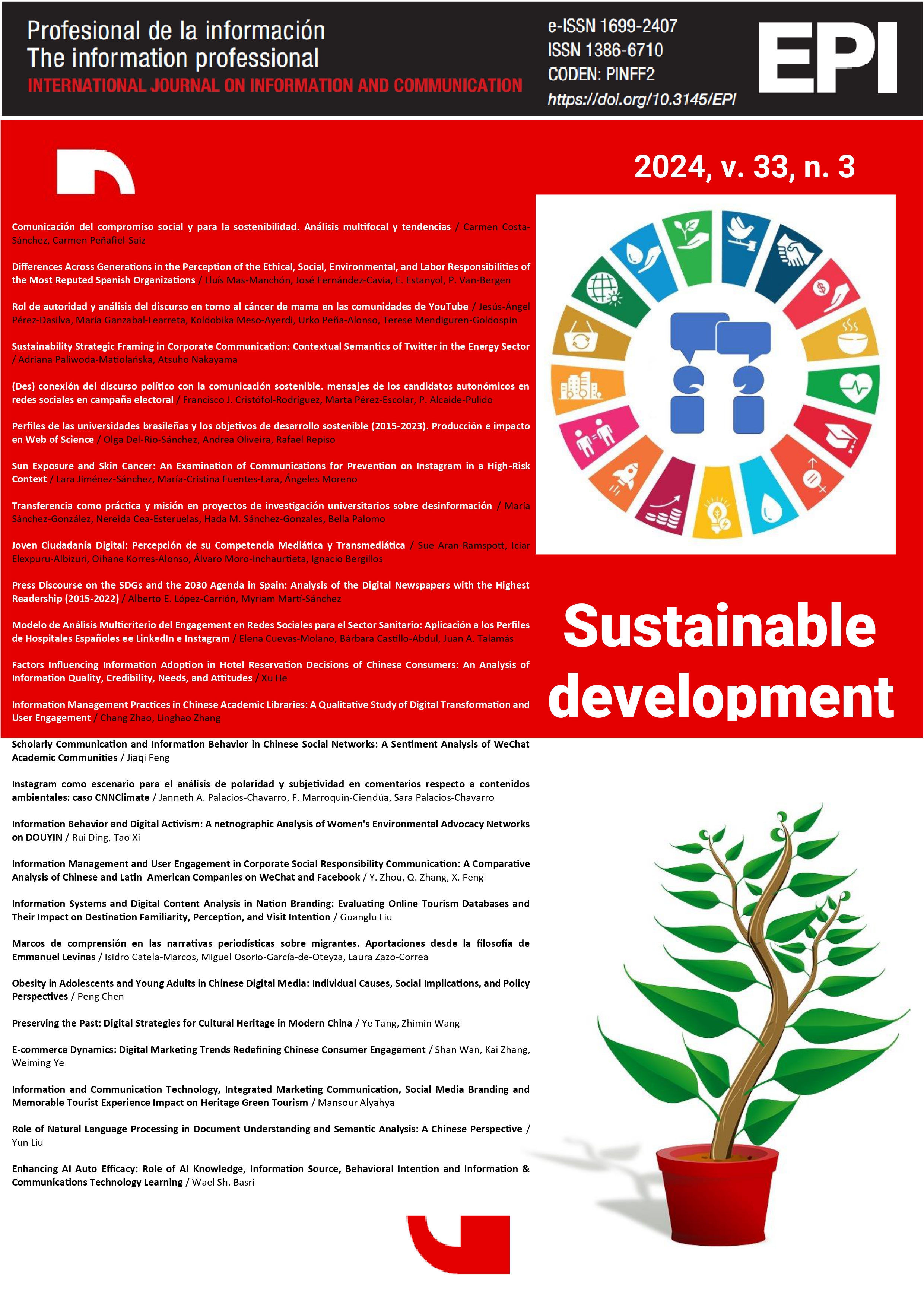Enhancing AI Auto Efficacy: Role of AI Knowledge, Information Source, Behavioral Intention and Information & Communications Technology Learning
DOI:
https://doi.org/10.3145/epi.2024.ene.0325Palabras clave:
AI Knowledge, Behavioral Intention, Source of Information, AI Auto-Efficacy, Information and Communication Technology LearningResumen
This study examines how employees' AI knowledge and understanding affects their auto-efficacy, behavioural intents, and ICT learning in Saudi Arabian software houses. The study seeks to understand how AI knowledge affects these outcomes and discover moderating and mediating factors. A method of quantitative analysis was used with 289 software firm employees. Data were acquired using a structured questionnaire using research-based scales. Data analysis using Partial Least Squares Structural Equation Modelling (PLS-SEM) examined complex construct interactions. AI knowledge significantly affects auto-efficacy, behavioural intention, and ICT learning. Behavioural intention mediates AI knowledge, auto-efficacy, and ICT learning. The impact of AI knowledge on self-efficacy is moderated by information source quality. These findings emphasise AI knowledge and context of AI learning. This study integrates AI-specific features into technology adoption models to improve theory. It highlights how targeted AI training programs and high[1]quality information sources may raise employee engagement with AI technology, serving as practical advice for companies aiming to improve their technology and workforce readiness
Descargas
Descargas
Publicado
Cómo citar
Número
Sección
Licencia
Derechos de autor 2024 Profesional de la información

Esta obra está bajo una licencia internacional Creative Commons Atribución 4.0.
Condiciones de difusión de los artículos una vez son publicados
Los autores pueden publicitar libremente sus artículos en webs, redes sociales y repositorios
Deberán respetarse sin embargo, las siguientes condiciones:
- Solo deberá hacerse pública la versión editorial. Rogamos que no se publiquen preprints, postprints o pruebas de imprenta.
- Junto con esa copia ha de incluirse una mención específica de la publicación en la que ha aparecido el texto, añadiendo además un enlace clicable a la URL: http://revista.profesionaldelainformacion.com
La revista Profesional de la información ofrece los artículos en acceso abierto con una licencia Creative Commons BY.




